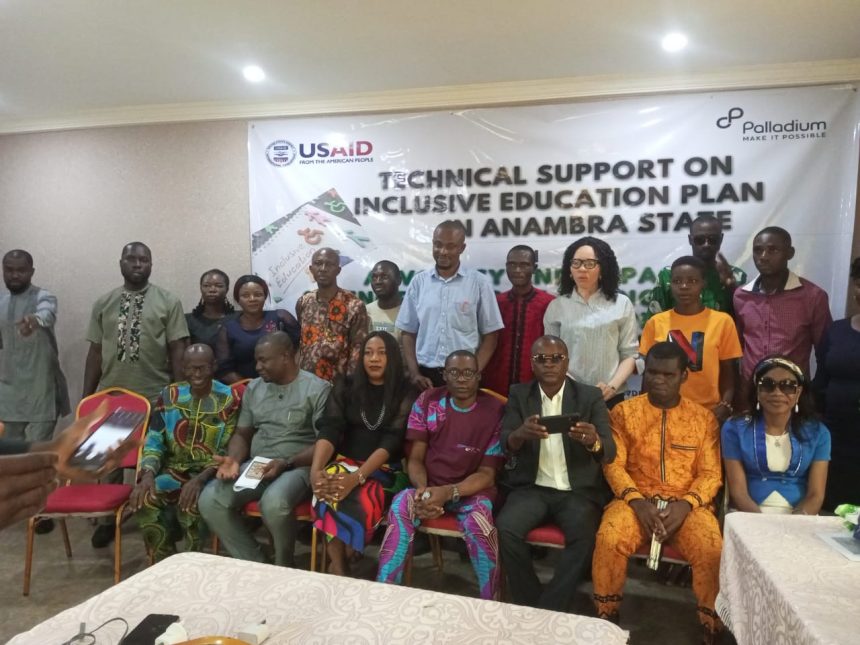Stakeholders from various government ministries and the disability community in Anambra State have gathered in Awka, the State capital, to develop an action plan for implementing an inclusive education policy for persons with disabilities in the area.
The event, which is funded by the United States Agency for International Development, USAID, is implemented under the Nigeria Strengthening Civic Advocacy and Local Engagement (SCALE) by a Non-Governmental Organization, Palladium and the national secretariat of the Joint National Association of Persons with Disabilities, JONAPWD.
Ugochukwu Okeke, JONAPWD chairman in the state, described the purpose of the event as a worthy one designed to remove inhibitions to the acquisition of formal education for persons with disabilities.
“We have come together to support an important course which is inclusive education for persons with disabilities in the states. I am thrilled to see many stakeholders in this room. I’m seeing participants from Nnamdi Azikiwe University, the Disability Rights Commission, the Ministry of Budget, the House of Assembly, the media and many members of the disability community.
“The issue of inclusive education cannot be addressed at a glance. It is a major tool for empowering PWDs. There are so many things that make education inclusive. These include access to infrastructure, budgeting, support for special education as well as relevant policies. Together we can make a real difference in the lives of these people who have been marginalized,” Okeke concluded.
The Vice-Chancellor, Nnamdi Azikiwe University, Awka, represented by the Director, Centre for Disability and Special Needs Research, Prof. Williams Obiozor, underscored the importance of inclusive education, which he said his institution had realized, hence the establishment of the research centre in 2019.
“We always say in our motto that there is ability in disability. Anambra State is a shining light in matters of disability in the southeast. Many more needs to be done and no child must be left in terms of acquisition of education,” he noted.
“The number of PWDs in our university has increased from 11 to over 70. We now have a disability policy for the university which partly is meant to encourage inclusion,” He said.
The Programme Officer, Samuel Ololo, appealed to society to view disability matters from a human rights perspective and not a pity party.
“Government actors in all sectors especially the Ministries of Education, Economic Planning and Budget, Finance, Women Affairs and Social Development amongst others should take matters of Inclusive Education seriously, I believe that this will help to introduce persons with disabilities to make their invaluable contribution to the growth of the society.”
In a presentation on highlight on inclusive education in Nigeria, Usman Umoro, a staff of the national secretariat of JONAPWD, explained the differences between segregative, integrative and inclusive education systems
“In a segregative system, children with disabilities don’t attend the same schools with other students. But, integrative system permits all students to attend same school but have different classes for those with disabilities. But inclusive education system encourages both children with disabilities and those without any disability to share the same class, playing fields and others.”
He identified factors militating against inclusive education to include “funding, knowledge gap about the rights, laws and policies, imposition of parental decisions on PWDs as well as discriminatory education system. After all, article 4.3of the UN Convention on the Rights of Persons with Disabilities frowns at taking decisions for PWDs without their consent and contributions”
The occasion featured a technical session during which participants made inputs into the action plan.





